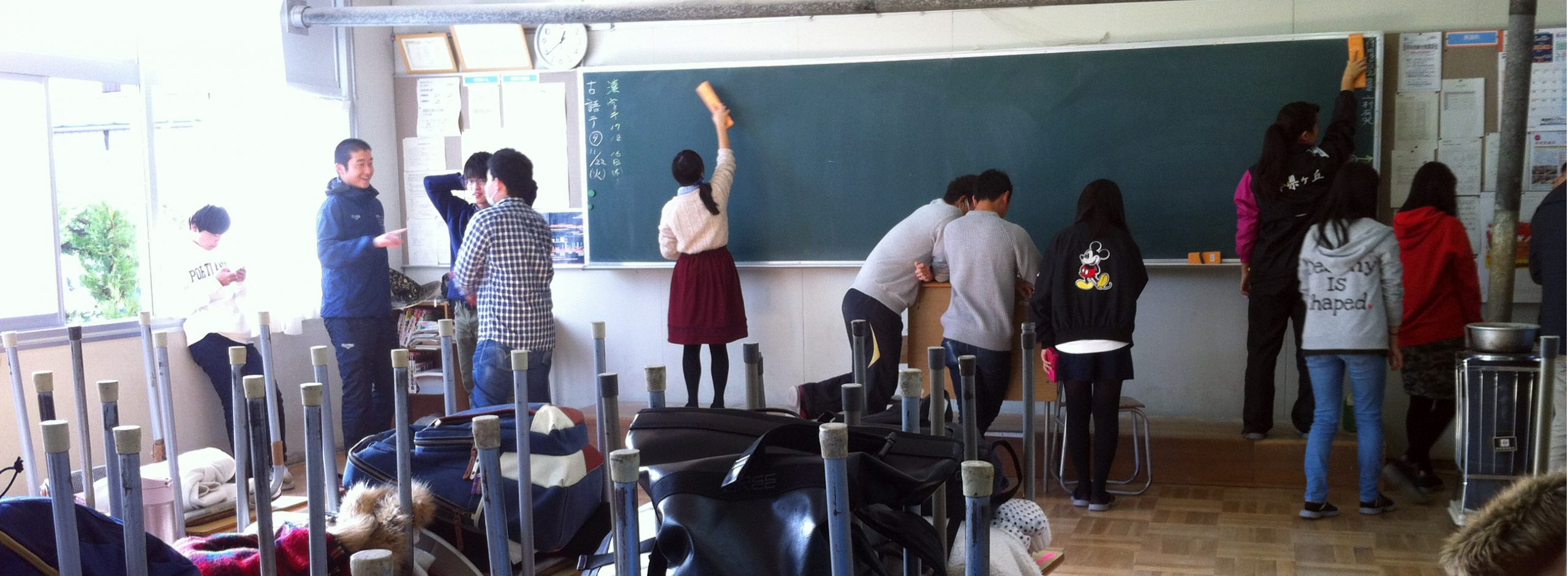
School, my First 3 Months
#1 Introduction
Hello everyone! If you’ve read any of my last posts [which you totally should!], you would notice that I often begin with; Sorry it’s been so long, I’ve been busy with school stuffs. Lots and lots of school stuffs. So, how about I talk about exactly that; school stuffs. Yesterday, I had been attending a Japanese senior high school for 3 months, and I’ve learned quite a lot since I last talked about school on this blog, which was over 2 months ago, if you haven’t read it yet, please do so, since I won’t be repeating much. Enjoy!
#2 Sports
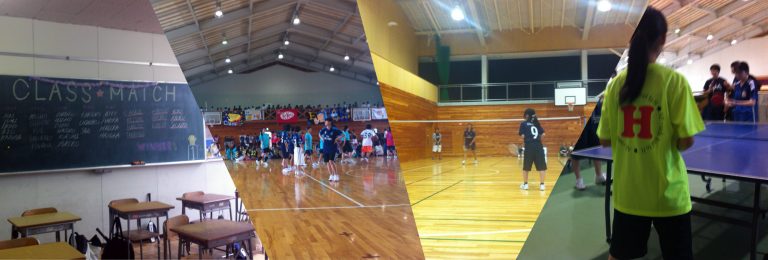
Japanese high schools are very good at sports. They are also very, very competitive when it comes to sports. Since I came to Japan, my school has held 2 big sports events for the entire school, one being the Class Match which I mentioned in my last post about school. The class match consisted of all classes competing against each other in various different types of sports. This time we had a soccer, basketball, badminton and table tennis tournaments. Each student can choose one sport to compete in, mine being table tennis. Each class also made a custom t-shirt for their class, ours being neon yellow and red for some reason. It was quite a lot of fun. The people who went/are going to the clubs of the respective sports were obviously the ones who won the matches, with the 3rd years having a clear advantage over everybody else. When one didn’t have any matches one could watch the others or eat snacks and have fun.
The second big sports event that we had was the Marathon Day, which is exactly what it sounds like, a marathon just for the school. For the boys it was roughly 32 km and for the girls around 27. The amount of planning that went into this event was crazy. The entire stretch, which went partly through Matsumoto city and partly through the mountains surrounding it, had markings on the ground to show you the way. There where also parents and volunteers standing at difficult intersections showing the way and answering questions. Furthermore, there where 5 or 6 checkpoints, which were big tents with snacks and water, where we had to stamp our card. This event was honestly really fun. All of us had bentos with us in our backpacks, and we did something that one should never do in Japan, eating while walking. That holds true in general, you won’t see anybody in Japan eat and walk, especially not somebody holding a lunch box in one hand and chopsticks in the other while climbing up a mountain. My legs were killing me the next couple of days, which was really inconvenient, as we had a debate tournament two days thereafter.
The schools in Nagano prefecture also hold games regularly, and the results are posted in the local newspaper. I haven’t seen any of these matches as I’ve been very busy with my own club, but I’m sure it’s fun.
#3 Cleaning
Wait, what? “Why would I want to read a post about cleaning, also, what’s so special about cleaning?” You may ask, and to that I say, my dear reader, not particularly much. It is a common misconception that Japanese high schools don’t have janitors, they do, it is still the students responsibility to clean the building though. It’s called O-soji. Each class is split up into smaller groups which each take up a different task, like cleaning the classroom, the various staff rooms or even the toilets. The groups swap their responsibilities roughly once a month, and, as this is Japan, of course their is a paper that clearly specifies when which group does what, as not only is Japan organized incredibly well, they also love their paper hand-outs. So far I’ve been responsible for the English teachers staff room, and part 1 and 2 of cleaning the classroom. To clean the classroom, everybody puts their chairs up and pushes their desks to the back of the class. Then, the floor is swept and the desks are pulled to the front to do the same at the back.
#4 English Camp
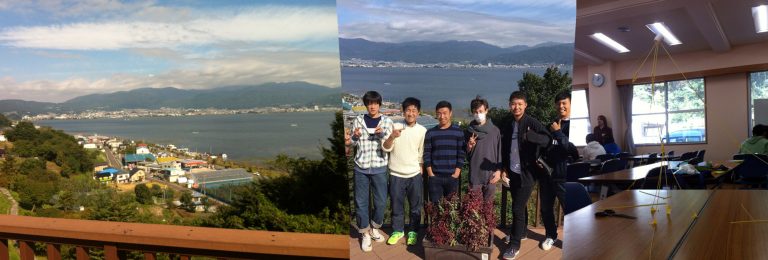
Our class went on an English Camp. The location of this trip might seem all to familiar if you have read my previous post about Takato Camp. This event was also incredibly well organized, we got maybe 4 or 5 different information packages before we departed for the trip. In Japan there is this system called the JET Programme. It’s a system where (native) English speakers from around the world can come and teach English at a Japanese school as an Assistant Language Teacher (ALT). At my high school we have 2 ALTs who are there daily and one who comes just one day a week. At the English Camp we had 7 ALTs at the English Camp, so the 3 from our school and 4 from various places around Nagano. We also had 3 JLTs (Japanese Language Teachers). As you can see we were quite a large group, which meant it was possible for the 43 students in my class to be split into small groups to play a variety of games. We opened the camp by doing various games that required interaction using English. The result of this game was the small groups in which we continued the rest of the day. We played quite a lot of games, including a “What do you say when…?”, a game where the ALT gives us a setting and you have to make an appropriate statement in English. We also played the marshmallow challenge, in which we had to build a tower using spaghetti, tape and string and balance a marshmallow on top. There where many other games but I doubt you came here to read me explain the rules of group games. [Oh, we also played Dixit, which is amazing.] If you win a game or have a “complicated” conversation with a teacher, you would get a stamp on your stamp sheet and at the end of the camp, you would win a certificate.
A fun story about sleeping, or, not sleeping, is that a fire alarm will wake you up with certainty. Therefore, if somebody bangs their head on the fire alarm located above their bunk bed, you will be woken up by a very loud noise. The fire alarm is connected to all of the lodges and the main building, so it is safe to say that everybody woke up. Something else that will make it hard for you to get to bed is the possibility to play card games all night long. I resisted the urge of doing so this time, but if you’ve read about my last Takato Camp blog, you will find out that I wasn’t that wise last time, and regretted it the night after.
The next day we did some morning dancing to Waving Flag by K’naan, a song I haven’t heard in six or seven years. We also did some more small games and started the big stamp scavenger hunt. All around the Takato Camp ground were hidden stamps for us to find using only rather vague riddles. It was also raining. Fun! Our team ended up winning the scavenger hunt which was really fun.
After the scavenger hunt it was time for the BBQ lunch. We made pizzas and barbecued veggies and meat over a fire in small groups and then enjoyed our meal. Something I really don’t understand about Japan is how they have to rice with a meal for it to constitute as a meal. Therefore we ate pizza, BBQ and rice. We spent the majority of our meal debating on whether the cheese belongs below or above the toppings.
#5 My Commute
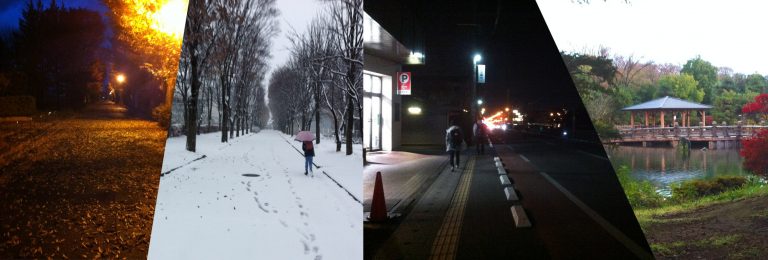
I may have touched upon this before but I would like to reiterate what I have previously stated. My commute is very, very long. And now it started snowing. As you can maybe guess I am not all too happy about the fact that it is snowing, as A) I really liked the fall foliage, and B) it is freezing cold and very slippery. It is also starting to get dark a lot faster than it used to, so when I am walking home at maybe 8pm, it is pretty pitch black. [I have resorted to carrying a flashlight with me at all times, as where I live, the streetlights are rather dim.]
This is just a quick little note: It is very, very cold here. Not in general, it is just a tad bit colder than where I am from, which is Austria. However, schools are not really heated. We do have a heater in our classroom, along with the special rooms [excluding the sports halls, which are always freeeezzzing.], however all of the hallways are very cold, and, if you sit at the back of the class, the heaters won’t really reach you. Let’s just say I am wearing a coat indoors.
#6 Lessons
Twice a week now I am taking Japanese lessons at the Multi-Culture center at M-Wing in Matsumoto. It’s close to the train station. There are special study classes for foreign high school students on Mondays and Thursdays, from 6 to 8pm. It’s run by volunteers. I’ve been learning so much at these lessons that I can finally understand slow conversations. If you ever come to Matsumoto or the surrounding areas, these lessons are a great way to study. They are quite inexpensive, costing 300¥ a lesson [2.50€ at the time of writing]. I also get homework to do, which I usually do during the classes I have no hope of understanding, such as Classic Japanese.
Kanji. I have very mixed feelings about Kanji. On the one hand, I really like kanji, and calligraphy for that matter [Calligraphy also being my favourite subject], however, on the other hand, there are just so many of them. Currently, I think I know roughly 400 Kanji, which is not nearly enough to read anything. Time too study!
My homeroom teacher has been really, really kind and has been trying really hard to ensure that I enjoy my time at school. He organized that I could replace some of the lessons I don’t understand [Classic Japanese and Japanese History, oh so many Kanji in both] with Calligraphy with other classes in my year.
#7 Wrap-Up
This is the longest post I have ever written, having a total of 1885 words. It has also been the most time consuming, as I started writing it two days ago. I hope you have learned something about Japanese high schools, or at least that you didn’t find this read all too boring. I shall conclude quickly as I have the last batch of gingerbread cookies in the oven, which I taught my host family how to make today, and it would really be a shame if they were to burn on me.
Question: I would really like to know at what time you are reading this blog, so I can schedule them accordingly. Right know I just post them whenever I finish them, but that seems counter-intuitive. Please COMMENT what time would be best for you, with your time zone attached [or if you want to make a certain Yona very happy in Japanese time, so I don’t have to convert 🙂 )
Or, you know, you could always
send a postcard,
Yona
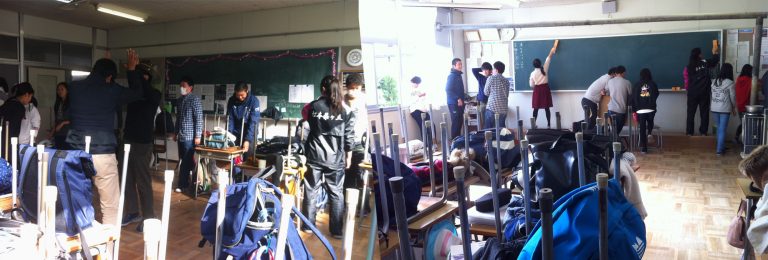
It’s 1ish AM & I’m binge reading your blog (I procrastinated acknowlidging it for a while, if that makes any sense. Japan seems pretty cool& it’s really interesting to see how it’s been for you. And also to see how different it is from the stereotype.
I hope the rest of your time is really good and maybe a little easier on how much you appear to have to do.